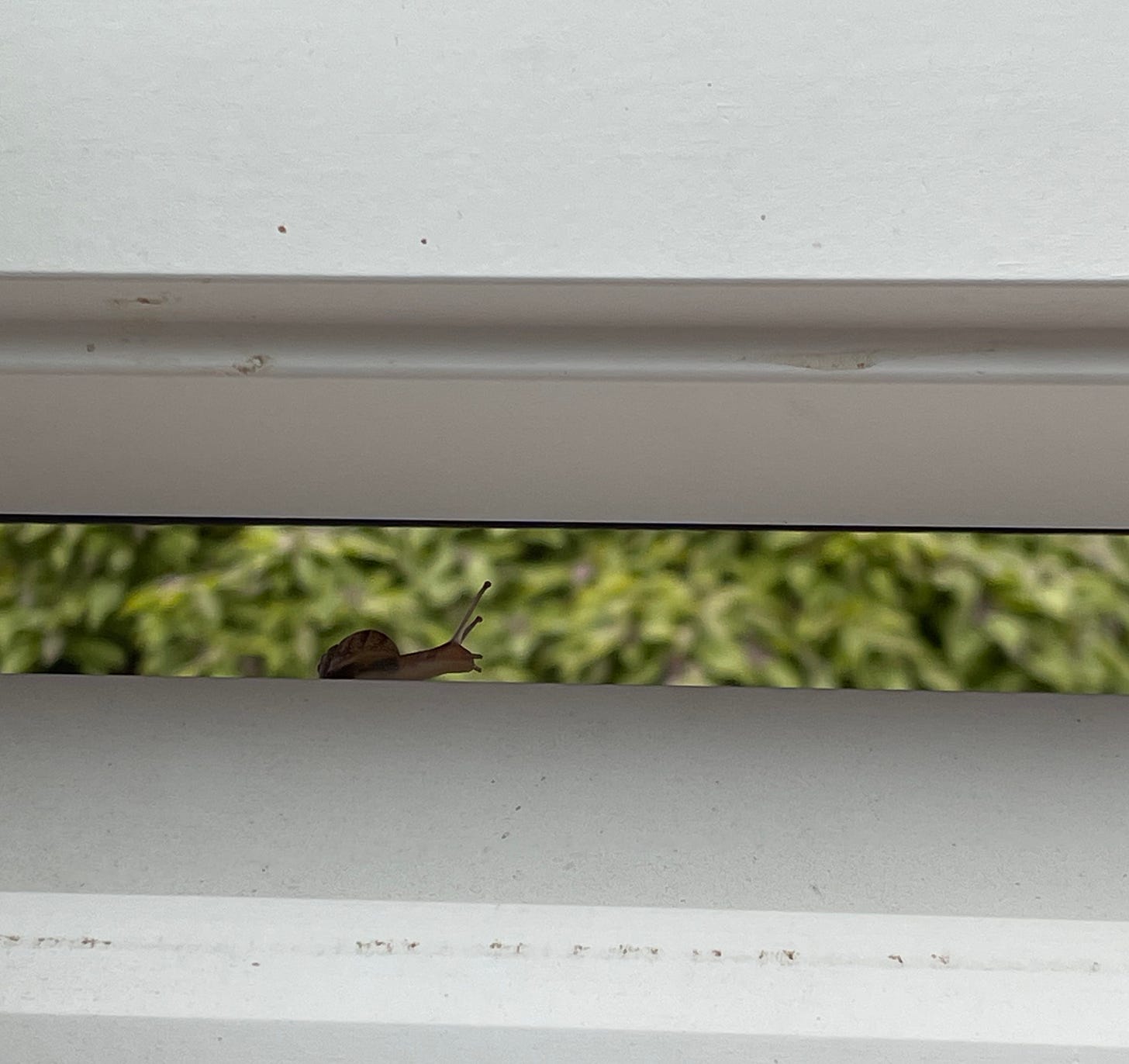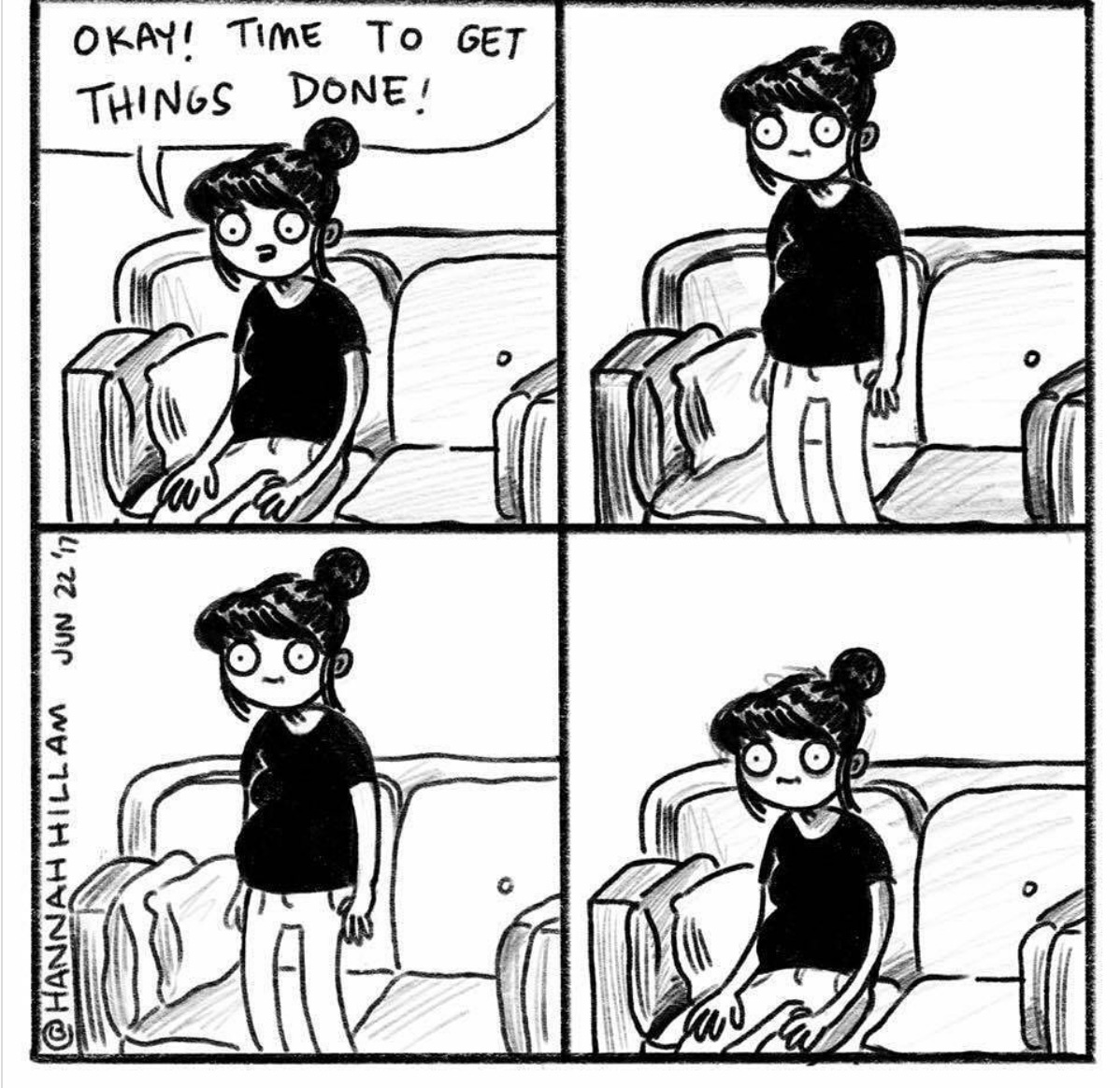Periods of Interruption
And what to do about them.

And what to do about them.
In her book, The Creative Habit, Twyla Tharp talks about building and protecting our space—a bubble—to create. It’s not always easy to safeguard; life happens, and it’s very difficult to stop it. There’s almost always something to interrupt your grand plan to get that creative project done.

These past years, I’ve had lots of interruptions. The most recent one involves getting settled in a new home. More are on the way this summer as family and friends come to visit. Even though I’m wildly excited to share my new life with them, if I’m being honest with myself, I know my output won’t be the same, despite all my best intentions.
Things rarely go as planned during times of disruption. Mostly because I overestimate my energy reserves during these periods. It’s difficult to ignore interruptions, unlike distractions which require willpower but are easier to tune out. We can turn off social media (a distraction), but we can’t really overlook a sick child or a broken water piper (an interruption).
Interruptions demand more stamina for the frequent stop-and-gos they create in our routine. Dedicated periods of focus time get reduced to erratic bouts of free time that are difficult to optimize. Especially when there are other people to care for and problems that need immediate solving. It’s hard to find free brain space for creative work when we have to manage all of these things at the same time.

The good news is there are still ways to get creative work done. There’s just one important caveat:
You must accept that your output levels will look different.
We can’t always predict periods or seasons of interruption (because sometimes they can last a season or more), but we can be ready by keeping a few things in mind.
1. Interruptions shift your output levels.
This can mean different things to different people. But usually, it will shift to slower and/or lower levels of creating.
2. Beating yourself up will not increase your output.
It will only make things worst. Why? Not only do you have little time and energy to create when there are interruptions, feeling guilty about it will deplete your reserves further. There’s no point in putting additional pressure on yourself. Shifting your focus instead to what you can control and what inspires you is more useful.
3. Interruptions are beyond your control.
We often sense a loss of control when our time is being hijacked by interruptions. Focusing on one thing that is in our control can be helpful. Here are some examples of what that might be:
- Waking up half an hour earlier to get a bit of creative work done before everyone else wakes up.
- Using your phone time to do research related to your projects instead of aimlessly scrolling.
- Setting boundaries and voicing to your entourage when you plan on working on your projects. Then finding support or a substitute for your other responsibilities during that time.
Transforming interruptions into something positive
Interruptions can be extremely aggravating. And yet, they can also be a blessing if you make a conscious decision to transform them into such. It’s difficult at first. I used to get cranky, annoyed, and frustrated when interruptions prevented me from making progress in my work. But I’m learning how to use those interruptions for my benefit. Here’s how:
Shift from output to input mode.
Interruptions often mean getting less done, and that’s ok! We can transform interruptions into wonderful periods of input. When you don’t have the time or energy to create, filling the proverbial “well” is more useful. This can include:
- Catching up on your online or offline reading.
- Journaling.
- Listening to a podcast or music album.
- Going to the movies or the museum.
- Reflecting on what you’ve accomplished so far and what you’d like to tackle next when you return to your routine.
- Spending time in nature.
- Being curious and noting what’s going around you.
Essentially, almost any form of self-care works. The key is to be open to whatever input might come your way. Even taking the bus or waiting in a check-out line can contribute to filling the well. I frequently get an abundance of ideas when I observe my surroundings. I don’t have to pay close attention, I just have to keep my input channels open, and suddenly I find inspiration everywhere.
Use interruptions as motivation.
Not all interruptions are predictable. But when they are, I can use them to create deadlines for myself. Knowing that my output levels will be lower in the foreseeable future, I can exert myself for a short term, then take a break when those interruptions happen.
For example, not all my projects have developed as I had hoped this spring, and progress on my novel has been painfully slow for many reasons. Yet, when I realized more interruptions were on the way, I knew it was time to kick myself in the pants. Which is why I’ve gone MIA these past few weeks. I’m trying to get my next draft done before they arrive.
Finally, interruptions happen all the time. They’re just part of life. And while we may not get everything we want to get done during those periods, it doesn’t mean, nothing can’t get done.
This “Aha!” moment came to me via my writing friend,
Lenaleah McCullough from Wild Devotion a few weeks ago. Lena has a busy life and a family to care for, and yet one day she announced she had written three chapters in a week. I understood then that I too could make progress on my draft even if I was busy.
So no matter how small or meaningless it may seem at the moment, those actions still count. Instead of thinking, it’s impossible to get any work done, I try shifting my mindset to what can I do now that will help me get back on track as soon as possible. That’s why pausing and resting consciously also count.
Things worth sharing this week
- Several readers have told me they're doing their own version of Offline Reading Month in May. I asked if I could interview them about their experiences afterward, and they agreed! I’m excited to share their insights with you, so stay tuned.
- Lenaleah McCullough talks about making space for stories to be told in this episode of the Secret Library Podcast, hosted by the lovely Caroline Donahue. If you are curious about the behind-the-scenes of the writing process, this podcast is for you. I enjoyed learning about Lena’s journey and her intuitive writing approach.
- I’m enjoying Avishai Cohen and Abraham Rodriguez Jr.’s new album, Iroko. If you listened to the Buena Vista Social Club on repeat in the late 90s, you will appreciate this album.
- Thanks to Remi, for sharing this post about not disappointing myself by Ava from bookbear express. I sincerely believe, not expressing your creativity is the best way of disappointing yourself.
So on that note, I’m back to working on the novel.
Happy writing, happy creating!
G.G. Law
Thanks for reading. If you’ve enjoyed this post, please share it with someone else who might like it. It’s free :D
Things I’ve Learned is a reader-supported publication. Please consider subscribing to support my work.





